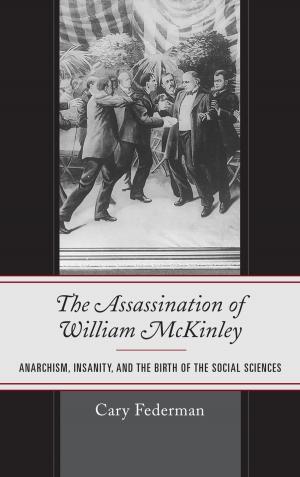Archibald Simpson's Unpeaceable Kingdom
The Ordeal of Evangelicalism in the Colonial South
Nonfiction, History, Americas, United States, Colonial Period (1600-1775), Religion & Spirituality, Reference, Revolutionary Period (1775-1800)| Author: | Peter N. Moore | ISBN: | 9781498569910 |
| Publisher: | Lexington Books | Publication: | April 5, 2018 |
| Imprint: | Lexington Books | Language: | English |
| Author: | Peter N. Moore |
| ISBN: | 9781498569910 |
| Publisher: | Lexington Books |
| Publication: | April 5, 2018 |
| Imprint: | Lexington Books |
| Language: | English |
This book draws on the life of Presbyterian minister and diarist Archibald Simpson (1734–1795) to examine the history of evangelical Protestantism in South Carolina and the British Atlantic during the last half of the eighteenth century. Although he grew up in the evangelical heartland of Scotland in the wake of the great mid-century revivals, Simpson spurned revivalism and devoted himself instead to the grinding work of the parish ministry. At age nineteen he immigrated to South Carolina, where he spent the next eighteen years serving slaveholding Reformed congregations in the lowcountry plantation district. Here powerful planters held sway over slaves, families, churches, and communities, and Simpson was constantly embattled as he sought to impose an evangelical order on his parishes. In refusing to put the gospel in the pockets of planters who scorned it—and who were accustomed to controlling their parish churches—he earned their enmity. As a result, every relationship was freighted with deceit and danger, and every practice—sermons, funerals, baptisms, pastoral visits, death narratives, sickness, courtship, friendship, domestic concerns—was contested and politicized. In this context, the cause of the gospel made little headway in Simpson’s corner of the world. Despite the great midcentury revivals, the steady stream of religious dissenters who poured into the province, and all the noise they made about slave conversions, Simpson’s story suggests that there was no evangelical movement in colonial South Carolina, just a tired and frustrating evangelical slog.
This book draws on the life of Presbyterian minister and diarist Archibald Simpson (1734–1795) to examine the history of evangelical Protestantism in South Carolina and the British Atlantic during the last half of the eighteenth century. Although he grew up in the evangelical heartland of Scotland in the wake of the great mid-century revivals, Simpson spurned revivalism and devoted himself instead to the grinding work of the parish ministry. At age nineteen he immigrated to South Carolina, where he spent the next eighteen years serving slaveholding Reformed congregations in the lowcountry plantation district. Here powerful planters held sway over slaves, families, churches, and communities, and Simpson was constantly embattled as he sought to impose an evangelical order on his parishes. In refusing to put the gospel in the pockets of planters who scorned it—and who were accustomed to controlling their parish churches—he earned their enmity. As a result, every relationship was freighted with deceit and danger, and every practice—sermons, funerals, baptisms, pastoral visits, death narratives, sickness, courtship, friendship, domestic concerns—was contested and politicized. In this context, the cause of the gospel made little headway in Simpson’s corner of the world. Despite the great midcentury revivals, the steady stream of religious dissenters who poured into the province, and all the noise they made about slave conversions, Simpson’s story suggests that there was no evangelical movement in colonial South Carolina, just a tired and frustrating evangelical slog.















